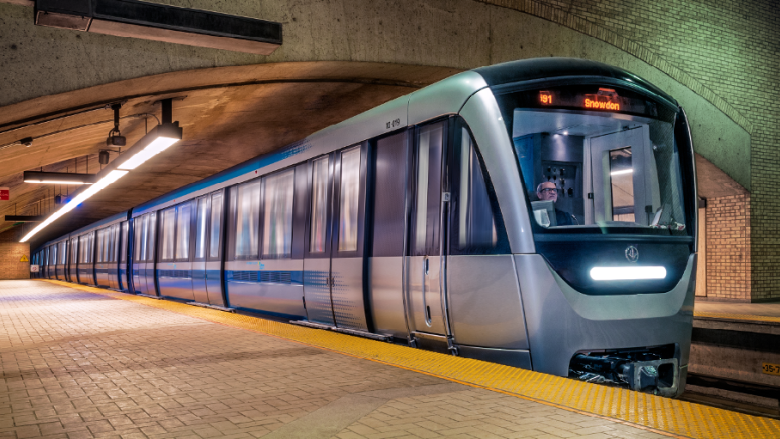What caused shutdown of Orange line? STM not quite sure
Repairs required after tire problems and damaged track equipment

The STM is still trying to figure out exactly what led to a partial shutdown of the Orange line for much of Saturday.
Amelie Régis, a spokesperson for the Société de transport de Montréal, said in an email Sunday the problem may have originated with a tire on an AZUR train, which resulted in damage to the track.
Or there may have already been problems with the track, which led to the tire being damaged.
A stretch of the Orange line — at one point between Côte-Vertu and Lionel-Groulx — was closed from Saturday afternoon until the end of the day. Service resumed Sunday morning.
Normal métro service <a href="https://twitter.com/hashtag/stminfo?src=hash">#stminfo</a> M
—@stm_OrangeBlame the AZUR?
A shuttle bus service was made available as an alternative, but there were long lines and many commuters complained about the way the situation was handled. The STM initially said the closure would last 45 minutes.
On Sunday, Régis defended how the transit agency responded to the shutdown.
Buses can only accommodate about 75 people, while a train can carry 1,000, she said.
"Buses will never be able to replace the Metro, but given the circumstances we reacted well to the situation with a major shuttle service," she said.
Régis said it's too soon to say whether the problem has anything to do with the new AZUR trains, which are being phased in on the Orange line.
The first car was rolled out last spring.
The shutdown comes only weeks after the STM promised better communication and service heading into 2017.
Service on other Metro lines was not affected.
'Clear problems,' Opposition says
Craig Sauvé, a Projet Montréal city councilor and the party's transport critic, was among those stuck on the Orange line when it stopped running.
He said the incident is further proof there are "clear problems with public transit in Montreal."
Sauvé introduced a motion at city council calling for more transparency on the origin of those problems. It didn't pass.
A total of 52 AZUR trains will be brought into service by 2018.
The 468 new cars are being built by the Bombardier-Alstom consortium, at a cost of $1.2 billion.